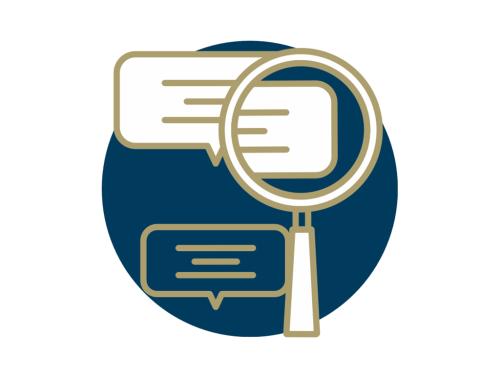One-Size-Fits-All Regulations are a Bad Deal for Low-Income Americans
Long-term benefits may not add up for households at low end of the income distribution


The GW Regulatory Studies Center scholars regularly conduct applied research to understand regulatory policy and practice from a public interest perspective. Our content often takes the form of public interest comments, formal testimony, working papers, policy insights, and short commentaries analyzing the most pressing issues in regulatory policy. View the rest of our material by the different types of publications listed on this page or our research areas.

Long-form publications intended for academic audiences that take a deep dive into a particular aspect of regulatory policy.

Scholarly analysis of the potential effects of particular rulemakings from federal agencies, and advice to Congress on how to improve the rulemaking process.

Short-form publications intended for all audiences which provide easy to access analysis of regulatory policy.

Formal publications, often completed with other leading organizations and individuals, providing a thorough understanding of regulations and the rulemaking process.

The weekly Regulation Digest contains everything you need to know about regulatory policy today, and our monthly Center Update gives you all of the latest from our team.
For accessible charts and supporting data that you can use in your own publications or presentations, visit the Reg Stats page.
One-Size-Fits-All Regulations are a Bad Deal for Low-Income Americans
Long-term benefits may not add up for households at low end of the income distribution
2014: The Regulatory Year in Review
This commentary highlights ten important final rules U.S. federal agencies issued in 2014. Although the agencies predict each rule will offer substantial public benefits, each rule also has considerable expected costs, some of which outweigh the benefits.
Fundamental change in regulatory decisionmaking is needed, and the foundation for that change must be greater humility.
EPA's CO2 Emission Guidelines for Existing Stationary Sources – Electric Utility Generating Units
EPA's proposed rule sets state-by-state carbon intensity targets for the production of electricity.
Reducing Regulatory Barriers to Transatlantic Trade
Well-designed regulatory approaches can support international trade and investment
DOE's Proposed Efficiency Standards for Commercial Heating and Cooling Equipment
The Department of Energy's proposed rule amends the existing energy efficiency standards for commercial unitary air conditioners (CUAC) and commercial unitary heat pumps (CUHP), which are used for space conditioning of commercial and industrial buildings.
Are Internships the New 'Pathway' Into the Federal Government?
Thanks to the Pathways Programs, current students and recent graduates may now find it a little easier to land a full-time job in the federal government.
What's New in the Fall 2014 Regulatory Agenda?
The Fall 2014 Unified Agenda identifies 3,415 regulatory actions at different stages of development.
Stakeholder Participation and Regulatory Policymaking in the United States
Regulation is one of the most common and important ways in which public policy is made and implemented in the United States. Agencies of the federal government issue thousands of regulations on an annual basis. Although many of these actions deal with routine matters, impose minimal burdens, and in some instances reduce or eliminate existing regulatory requirements, agencies annually promulgate hundreds of new regulations with significant effects on the economy and political system.
